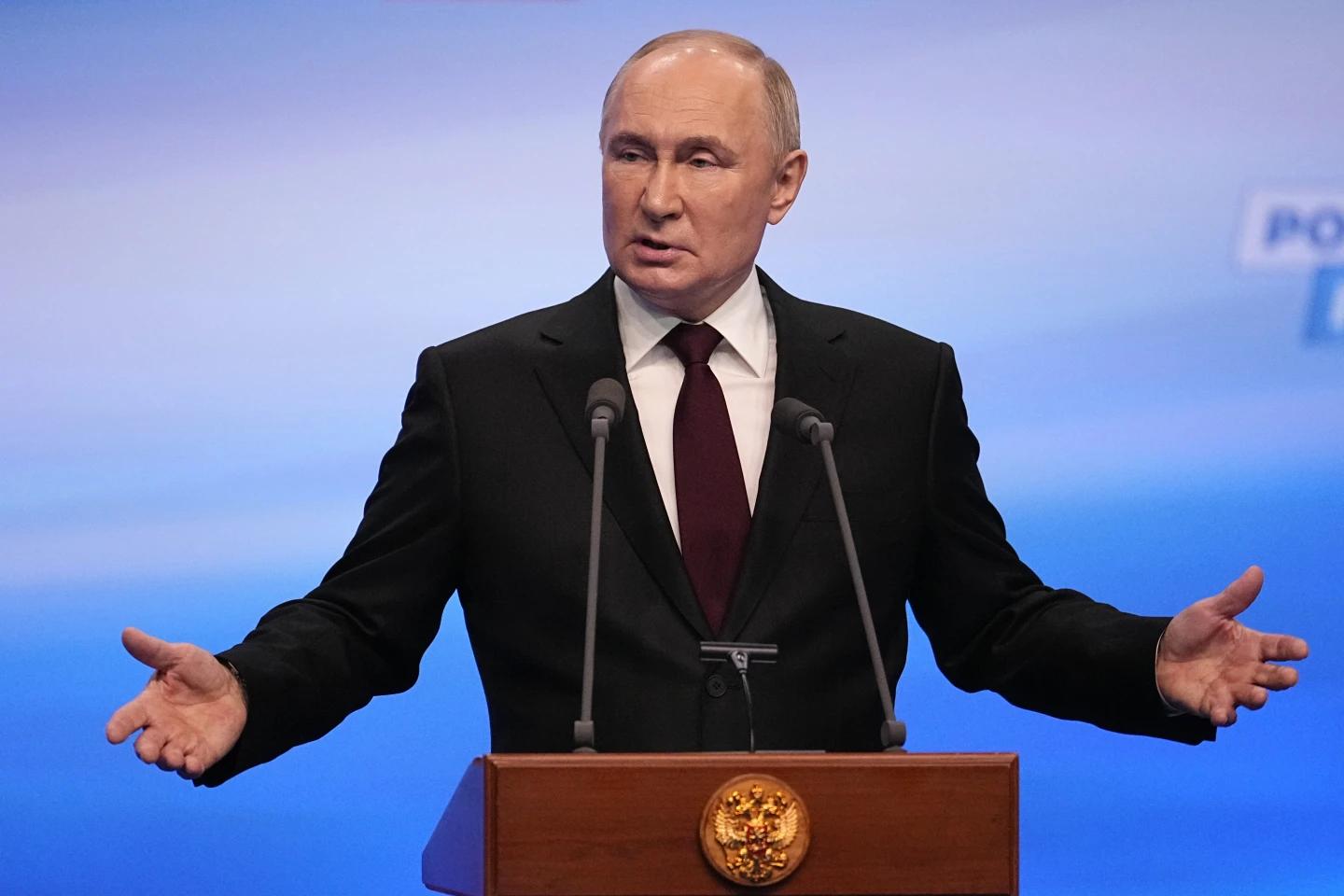Russians have gone to the polls in a presidential election that — unsurprisingly — elected Vladimir Putin once again for a fifth presidential term.
Vybor — the Russian word for ‘election' — also means ‘choice'. And although there were four candidates on the ballot, choice was largely lacking.
Putin won 87.8 percent of the vote, the highest in Russia's post-Soviet history.
Russian elections have become increasingly less competitive over time, but this year's contest has been perhaps the most mundane.
Putin's competitors on the ballot paper were three members of parliament with little public profile.
The Communist candidate — 75-year old agrarian Nikolai Kharitonov — lost a presidential election to Putin already back in 2004.
Nationalist Leonid Slutsky, the leader of the Liberal Democratic Party of Russia, campaigned with the slogan ‘Zhirinovsky's deeds live on', relying on the charisma of his firebrand predecessor Vladimir Zhirinovsky (1946-2022), in the absence of much of his own.
And the third candidate — 40 year-old Vladislav Davankov — has only been a member of parliament since 2021 and has little name recognition outside political circles.
All three voted unanimously with all other deputies in autumn 2022 for the annexation of eastern Ukrainian regions into Russia.
Since the election result was seemingly a foregone conclusion, what was the point of holding it in the first place?
First, even if the outcomes are not in doubt from the outset, election victories still buttress the legitimacy of electoral authoritarian leaders.
Despite dismissing the election last summer as a costly ‘pointless bureaucracy', the president's official spokesperson Dmitrii Peskov last week claimed that the country's democracy was ‘the best', an important message if he is later to present the election result as genuine.
Though Putin's long-term opinion poll approval rating stands at 86 percent, victory at the ballot box — even in a skewed playing field — cements the idea that there is no alternative to the incumbent president.
Second, as in Soviet times, elections play a role in mobilizing society.
Putin has taken advantage of his incumbency to ramp up the pace of his official engagements in recent weeks, opening hospitals, flying fighter jets and delivering his annual two-hour ‘State of the Union'-style address to parliament.
This ensured he gathered nearly 1000 minutes of TV news coverage in the last week of February — nearly all of it formally relating to his duties as president, rather than as a participant in the election campaign.
This dwarfed the television coverage of the other candidates, who received just 7 to 17 minutes each in the same week.
By refusing to participate in the televised election debates, Putin has further starved the other candidates of relevance. At the same time, electoral commission campaigns to encourage turnout — as well pressures from above from state enterprises and municipal employers — were used (as in the past) to drive normally politically apathetic voters to the polls.
Third, elections allow the regime to check its degree of control across the country. Russia is divided into 83 regions (excluding the illegally annexed regions of Ukraine), spread across 11 time zones, meaning that steering everything from Moscow is a significant challenge.
Notwithstanding the predictability of the overall result, turnout rates and support levels for Putin and the pro-Kremlin parties generally vary considerably in each election.
The election results serve as an examination to see which regional governors can best demonstrate their regions' loyalty and mobilize their support bases for the Kremlin, as well as highlighting any regions where there may be above-average risks from opposition support or apathy.
Finally, the backdrop of Russia's war on Ukraine serves an important propaganda purpose.
With the economy on a war footing, for the presidential administration it is important to show that the Russian public still backs Putin and that Western sanctions and Russia's limited success on the battlefield is not affecting his popularity adversely.
Ukraine, whose resistance to Russian aggression has been presented as a wider fight for democracy, has been forced by the war to postpone its own presidential contest, providing a contrast with Russia's message of ‘business as usual'.
There may, of course, still be the odd surprise before the final results are certified.
After the 2011 parliamentary election, there were widespread protests at perceived vote-rigging. The widow of the late Kremlin critic Alexei Navalny — whose funeral on 1 March in southern Moscow was unexpectedly attended by thousands — called for all who were against Putin to turn up simultaneously at polling stations at 12pm on the final day of voting.
Given the ramping up of repression and restrictions on free speech since the start of the invasion of Ukraine, however, only a limited number of people were prepared to take heed of these calls. Thus, as in Soviet times, it seems we are effectively back to vybory bez vybora: elections without choice.
(The author is a Professor of Political Science at Malmö University, Sweden and Pro Dean of Malmö University's Faculty of Culture and Society. He has researched extensively on Russian and post-Soviet politics. This article was originally published under Creative Commons by 360info)

